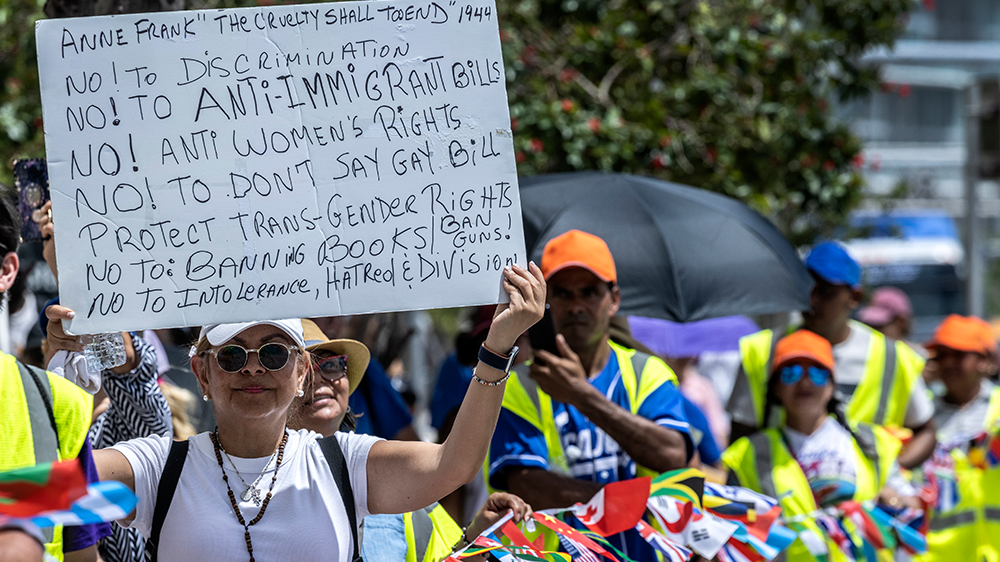Hardline DeSantis immigration law causes exodus of migrant workers from Florida agriculture and construction
State’s key industries like agriculture and tourism are heavily reliant on migrant labour
Your support helps us to tell the story
From reproductive rights to climate change to Big Tech, The Independent is on the ground when the story is developing. Whether it's investigating the financials of Elon Musk's pro-Trump PAC or producing our latest documentary, 'The A Word', which shines a light on the American women fighting for reproductive rights, we know how important it is to parse out the facts from the messaging.
At such a critical moment in US history, we need reporters on the ground. Your donation allows us to keep sending journalists to speak to both sides of the story.
The Independent is trusted by Americans across the entire political spectrum. And unlike many other quality news outlets, we choose not to lock Americans out of our reporting and analysis with paywalls. We believe quality journalism should be available to everyone, paid for by those who can afford it.
Your support makes all the difference.A new immigration law passed by Florida governor Ron DeSantis, described by observers as one of the harshest in the country, has caused a massive decline in the Sunshine State’s labour force since it took effect, according to some business owners.
The Republican leader and 2024 presidential campaign’s signature immigration law, which took effect 1 July, makes it a third-degree felony for unauthorised immigrants to knowingly use false ID’s for employment, and business that knowingly employ unauthorised immigrants or who avoid using the E-Verify system can lose their licenses or face up to $1000 in fines. The law also requires hospitals that accept Medicaid to check for immigration status, and invalidates drivers licenses issued to unauthorised immigrants from other states.
In Miami’s booming construction industry, some companies are reporpting up to a 25 per cent decline in workers, The Wall Street Joural reports.

“We’ve seen some fallout on job sites, particularly as it relates to hourly labor as a result of this new law,” Tom C Murphy, co-president of Coastal Construction, a company with more than 30 active projects across the state, told the paper.
There at least 400,000 undocumented immigrants working in the state, according to Samuel Vilchez Santiago, the American Business Immigration Coalition’s Florida director.
“We are in dire need of workers,” he told the Associated Press last month. “So there is a lot of fear from across the state ... that this new law will actually be devastating.”

Migrant groups protested the new law in June, while the governor’s office told the AP in a statement, “Any business that exploits this crisis by employing illegal aliens instead of Floridians will be held accountable.”
Mr DeSantis, despite governing a state known for its vibrant immigrant populations from Latin America, has positioned himself as a hard-line anti-immigrant crusader as he runs for president.
In late June, he visited the US-Mexico border, where he blamed security issues on the Biden administration and proposed a return to most of Donald Trump’s most controversial immigration policies.
That includes detaining migrant families with children beyond the customary 20 days, finishing the US-Mexico border wall, and ending the long-standing practice of releasing migrants into the US ahead of their court dates on potential immigration charges, which are usually civil violations rather than criminal ones more typically associated with prison.




Join our commenting forum
Join thought-provoking conversations, follow other Independent readers and see their replies
Comments